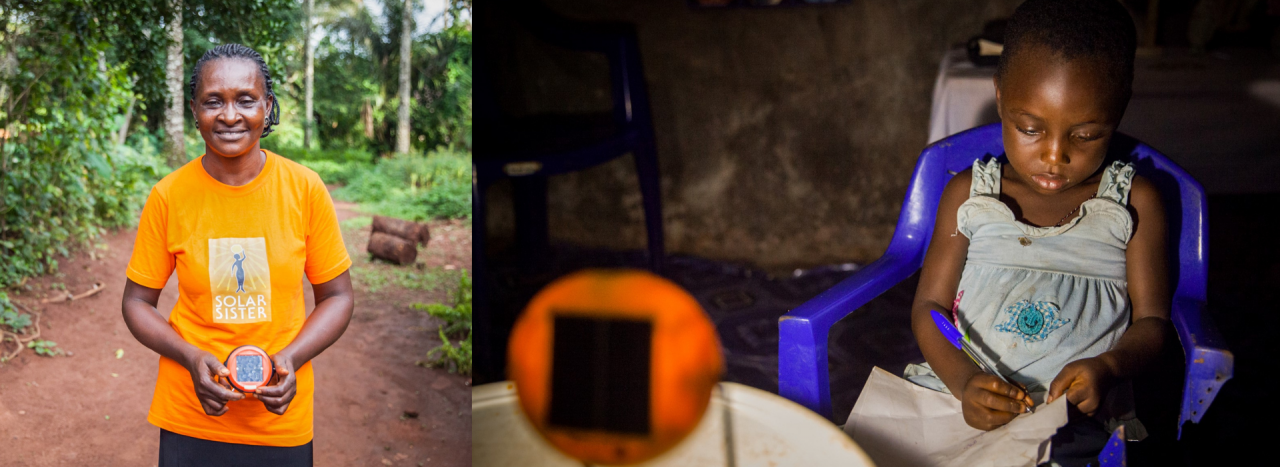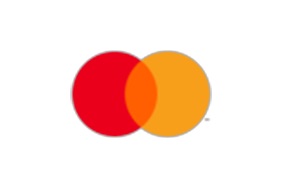How Women Entrepreneurs are Flipping the Switch in Africa
Eucharia Idoko knows the value of light.
Published 09-13-21
Submitted by Mastercard

Eucharia Idoko knows the value of light.
Because power in Nigeria’s Enugu State, where she lives, is unpredictable and expensive, it can be dangerously dark at night. That’s starting to change thanks to the inexpensive and easy-to-use solar-powered lanterns that Idoko sells through the nonprofit Solar Sister, which has helped thousands of women (and some men) in mostly off-grid areas of sub-Saharan Africa become clean energy entrepreneurs.
But recently, the lanterns did more than help her earn money to pay the school fees for her five younger children. They may have saved her life.
“Sometimes in our area, gangs come to kidnap people at night,” Idoko says. “One time, I was alone in the house with my granddaughter when they came banging on my door. ‘Put out the light and come outside so we can give you a message,’ they said. I was very afraid.”
The men ran away when neighbors heard the commotion. Idoko believes that her solar-lit porch helped keep them away. With every new light she sells, Idoko tells her customers about the health and economic benefits – and also the very real security – of all-night solar lights.
Katherine Lucey, a former investment banker with experience installing solar power in school and health clinics in rural Uganda, co-founded Solar Sister in 2009. The nonprofit works with women in Nigeria and Tanzania, teaching them how to use and sell solar-powered lights and other equipment, building their entrepreneurial skills and stoking their financial independence while bringing clean energy to close to 2 million people.
In sub-Saharan Africa, just 28.1% of rural communities have access to electricity, according to data from the World Bank. There’s also significant room for improvement in urban areas where just 77.9% of people have access to electricity. Lucey sees lighting up Africa as a way to bring more economic opportunity to the continent.
When Lucey started her nonprofit, solar-powered products were becoming more available and more affordable, but she realized there wasn’t a distribution model to get clean energy items into the hands of people who could use them the most. That’s when the idea for Solar Sister, which also distributes clean cookstoves, solar-powered radios and phone chargers, was born.
“Simple light changes everything in a household. It powers up productivity,” Lucey says. “Imagine being able to have a light so you are able to cook and serve your family dinner at night, or having a light that enables your children to study, or simply to allow you to see when you go to the latrine in the middle of the night to make sure you don’t step on a snake.”
Solar Sister also provides business coaching, which teaches entrepreneurs about clean energy technologies along with business skills like financial management, business planning and marketing. Solar Sister’s core curriculum also includes modules on empowerment, teaching women self-confidence, solution seeking, and agency. The women build their businesses, usually by starting with friends and family, but most quickly gain new customers and a reputation by word of mouth and keep all the profits from their sales. Smaller ticket items, like lanterns, are cash only, while larger items, such as clean cookstoves, come with payment plans if the buyer isn’t able to pay upfront.
To date, Solar Sister has helped more than 6,000 women become entrepreneurs. But it has even bigger ambitions. The organization hopes to train 10,000 women by 2023 and is actively exploring new markets in Africa. Key to their expansion plans is using data to help their entrepreneurs make better buying and selling decisions.
In January, data.org, an initiative led by founding partners the Mastercard Center for Inclusive Growth and The Rockefeller Foundation, named Solar Sister as one of eight winners of a $10 million grant to use data to propel social impact projects. (Solar Sister received $443,080.)
Through this grant, Solar Sister is partnering with data science experts at Fraym to put data in the hands of Solar Sister entrepreneurs and Solar Sister field staff, which will enable them to maximize business outcomes and bring light, hope and opportunity to more people throughout sub-Saharan Africa. For this project, Fraym will weave together hyper-local survey data, satellite imagery and points of interest data to build hyperlocal hotspot maps, which will indicate where ideal cash and credit consumers live. They will also generate data that Solar Sister field staff will use to more effectively recruit entrepreneurs.
The goal for entrepreneurs is increased sales, and for field staff it is more efficient and targeted entrepreneur recruitment and retention.
As part of the project, Solar Sister is providing a pilot group of entrepreneurs with smartphones, which include these data-driven maps. This will be coupled with digital literacy training – teaching the entrepreneurs how to use data for the first time to make more strategic and evidence-based business decisions.
With this real-time data about her community, Solar Sister entrepreneurs like Eucharia will be able to make more informed decisions about the market and see what consumer demand looks like at a neighborhood level.
Lucey says moving forward, Solar Sister will continue to look for more ways to empower women through data and entrepreneurship, and to light up rural Africa. “We want to make sure that every sale is making an impact,” she says, “and that the women we are supporting as entrepreneurs are improving their lives.”
heck out more content from The Mastercard Center for Inclusive Growth

Mastercard
Mastercard
About Mastercard
Mastercard is a global technology company in the payments industry. Our mission is to connect and power an inclusive, digital economy that benefits everyone, everywhere by making transactions safe, simple, smart and accessible. Using secure data and networks, partnerships and passion, our innovations and solutions help individuals, financial institutions, governments and businesses realize their greatest potential. With connections across more than 210 countries and territories, we are building a sustainable world that unlocks priceless possibilities for all.
More from Mastercard

